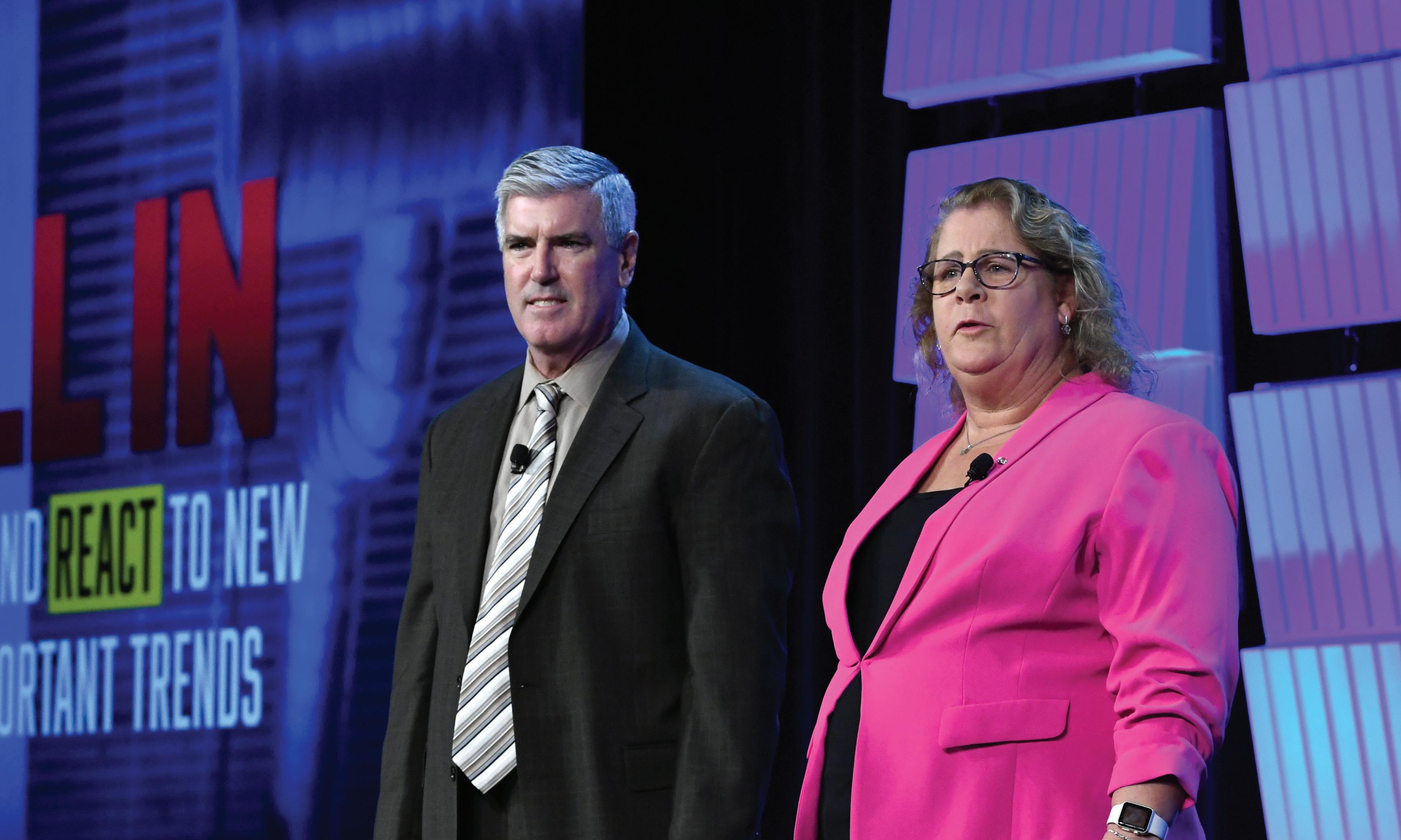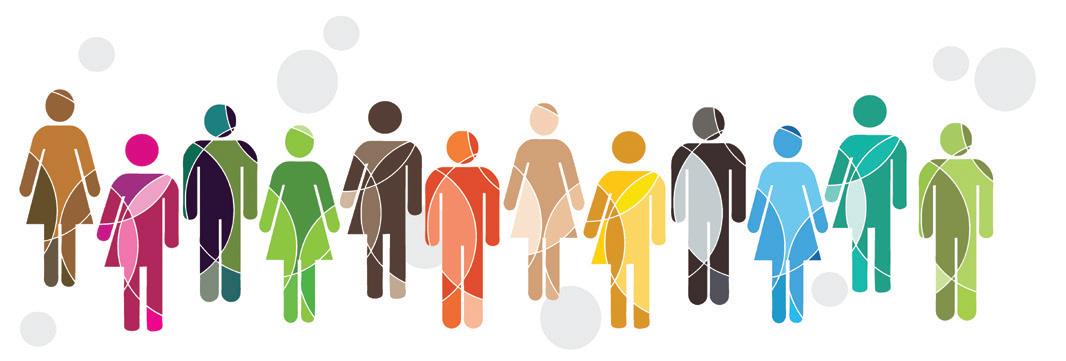
5 minute read
SMACNA-SMART Stepping Up for Inclusivity
By / Robin Brunet
As SMACNA’s first female president, a successful mechanical engineer, and a respected executive in the industry, Angela Simon strongly endorses workplace diversity and inclusion. But in the summer of 2020 she turned endorsement into action when, during the protests of George Floyd’s murder, nooses were hung on several job sites supervised by Black project managers.
Simon says, “It happened in Florida and Iowa, and it did not involve sheet metal workers, but it demonstrated that discrimination is, unfortunately, still alive and well on many levels, from overt to subtle. I thought it was time to focus on positive change.”
The result was a joint statement issued by SMACNA and SMART on February 17, 2021, vowing to engage in ongoing discussions about recruiting and retaining a diverse and inclusive workforce, in order to benefit communities and strengthen the unionized sheet metal industry.
The statement notes that a series of initiatives aim to shift the mindset of labor and management to welcome skilled workers, “while embracing differences in age, ability, ethnicity, sex, gender identity, national origin, language, marital status, political affiliation, race, religion, sexual orientation, and other characteristics that make individuals unique.”
Joseph Sellers, general president of SMART, is equally motivated to enact change. “I first became aware of the need for diversification 25 years ago in my home Local of Philadelphia when, as a training coordinator responsible for recruitment, I would visit communities to tell people about opportunities in our industry,” he says.
Sellers went on to spearhead a variety of diversification programs, but he says his efforts assumed added importance about seven years ago when members of SMART’s Women’s Committee approached him with stories of discrimination. “I read an experience of one of our sisters that was vile, horrific,” he says. “The realization that this was happening regularly compelled us to redouble our efforts to end inequality of any kind.”
“One of the biggest problems we face is unconscious bias, which is prevalent and extends into training, and it must be dealt with,” Sellers says. “So, when SMACNA approached us to set up a joint diversity and inclusion task force, we were eager to participate.”
The joint effort also included the CEOs of the Mechanical Contractors Association of America (MCAA) and the National Electrical Contractors Association (NECA) and the presidents of the United Association of Journeymen and Apprentices of the Plumbing and Pipe Fitting Industry of the United States and Canada (UA) and The International Brotherhood of Electrical Workers (IBEW). “They were on board immediately,” Simon says. “They appreciated the gravity of the situation.”
One of the more obvious consequences of bias is job numbers. “In the trades overall, women account for only 4% of the workforce, and that percentage hasn’t changed in 20 years,” Simon says. “In our industry, women account for only 9.5% of the workforce, and they are mostly in accounting or administrative positions, not technical. Indeed, the number of women who make it through apprenticeships is far lower than the number of men.”
SMACNA and SMART have agreed to establish, with the help of experts, a strategic Diversity, Equity and Inclusion (DEI) plan with long- and short-term objectives that will be evaluated and adjusted annually. Initiatives include developing web-based training for coordinators and trainers across the United States and Canada, and developing a curriculum that spans the entire length of apprenticeship, so graduates regard DEI as part of the culture, much the same as they do safety.
Arguably, the joint effort couldn’t have come at a more opportune time. “About 40% of our workforce is retiring in the next few years, and we’re already short of talent,” Simon explains. “It makes sense that in our effort to achieve inclusivity we explore relatively untapped recruitment markets, including women and people of color.”
At Western Allied Mechanical, Simon is also reaching into the community in another way. “This summer we’ll stage the Heavy Metal Summer Experience in Menlo Park, a sixweek program that will introduce high schoolers to union job opportunities in mechanical construction and show them the basics of sheet metal, piping, and plumbing construction,” she says. A similar camp will be held by Hermanson Company in Kent, Washington.
For his part, Sellers is confident that positive change will happen if leaders adhere to a simple principle. “We all need to listen,” he says. “Seven years ago we listened to the brave members of our Women’s Committee, and this led to resolutions, such as a commitment to double the number of women in SMART by 2025. It’s made us better as an organization, and by working together we can continue to improve.”
“This joint effort is a cultural change, and it may take many years to move the needle,” Simon says. “I plan to continue working on this after I retire from Western Allied, which will give me more time to devote to this important issue.”
“I’m very hopeful for the future,” she adds. “Our people appreciate what’s correct and not correct, and attitudes really do change over time. What all this boils down to is providing opportunity and equality to a wide range of talent—and that’s a classic win-win scenario.”▪

Robin Brunet’s journalism has been published in over 150 magazines, newspapers, websites, and other media across Canada and the United States since 1982.
SMACNA-SMART Joint Statement on Diversity and Inclusion
SMACNA and SMART recognize that diversity strengthens our workforce, benefits our communities, and makes the unionized sheet metal industry stronger and more competitive by reflecting the communities where we operate and the people we serve. To affirm our commitment to diversity and inclusion, we have agreed to develop, with the help of experts, a coordinated strategic plan with long-term and short-term objectives which will be evaluated and adjusted as necessary. Our unified goal is to shift the mindset of management, labor leaders, and our respective memberships to recruit, welcome, and retain the most competent and skilled workforce available while embracing differences in age, ability, ethnicity, sex, gender identity, national origin, language, marital status, political affiliation, race, religion, sexual orientation, and other characteristics that make individuals unique. SMACNA and SMART are strongly committed to take the necessary steps to achieve our goal of a diverse industry with no tolerance of bullying, harassment, or discrimination. We will provide regular updates on our progress on the strategic plan and on our continued work to promote our shared values of diversity, inclusion, and equity. ▪







